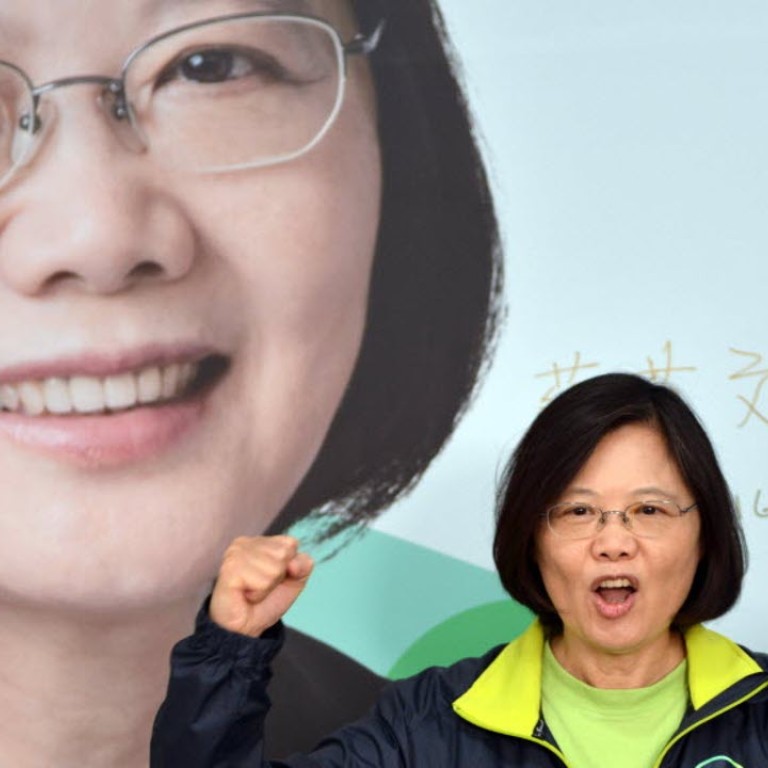
One China and a third force in parliament: the burning issues for Taiwan’s president-elect Tsai
When Taiwan’s president-elect Tsai Ing-wen is sworn in four months from now, she will face a host of burning issues, including a new “third force” in parliament, the island’s sagging economy and thorny cross-strait relations.
Part of the “third force” is the newly formed New Power Party, which emerged from the “Sunflower movement” of 2014 and won five seats in the 113-member legislature in Saturday’s polls.
“Who knows whether those justice fighters will repeat what Tsai’s Democratic Progressive Party’s combative legislators did in storming parliament to prevent a bill from being passed,” a former Kuomintang legislator said in jest.
READ MORE: Slump in exports hits Taiwan’s economy
“And the possibility is high, given that some of them stormed parliament in 2014 to demand that parliament hold the trade services pact [with Beijing] for rectification,” said the legislator, who asked not to be named.
Some 300 students occupied the parliamentary chamber for three weeks from mid-March 2014 in what later became known as the Sunflower movement.
Campaigning on a platform of upholding social justice and narrowing the wealth gap, movement activists formed the New Power Party last year, saying Taiwan needed a third force to keep an eye on the ruling party. Asked if the group would resort to radical means, Huang Kuo-chang, a Sunflower leaders who won a legislative seat in New Taipei City, said: “We need to discuss this.”
READ MORE: A force awakens in Taiwan: vote of sunflower generation could be pivotal in elections
Analysts said although the DPP had won 68 seats to become the largest party in parliament for the first time in its history, Tsai should not underestimate the impact of the “third force”, which had done better than the People’s First Party of former KMT stalwart James Soong.
Aside from the “third force”, Tsai would also have to pay more attention to the impact of young people, said Hawang Shiow-duan, professor of political science at Soochow University in Taipei.
INFOGRAPHIC: See the new Taiwan

Chu said that with a mood of pessimism among economic forecasters about the coming four years, Tsai could end up like outgoing president Ma Ying-jeou, whose failure to deliver on pledges to improve the economy was a major reason for Tsai’s win.
Wang Kao-cheng, dean of the College of International Studies at Taipei-based Tamkang University, said: “Another problem facing Tsai is cross-strait relations.”
READ MORE: ‘There is only one China’ – prickly outburst tells Taiwan to abandon independence ‘hallucination’ after Tsai Ing-wen win
He said Beijing was waiting for Tsai to clearly declare her stance on the “1992 consensus”, an understanding the mainland has used to test whether Tsai is abiding by the “one China” principle.
Tsai has been ambiguous over the consensus, reached verbally in 1992 when Beijing and Taipei agreed on the principle of “one China” while reserving the right to differ on its meaning.
Tsai also risks losing some of the countries which recognise Taiwan if she fails to obtain understanding from Beijing, which has warned countries against forging ties with Taipei, analysts say.

